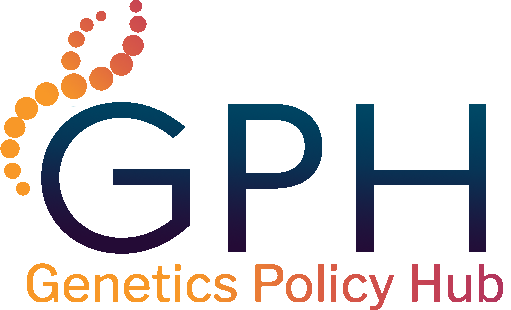From 2004 to 2024, the Health Resources and Services Administration (HRSA) funded the National Coordinating Center for the Regional Genetics Networks (NCC). NCC developed and maintained the Genetics Policy Hub.
With the conclusion of NCC funding, the Genetics Policy Hub (GPH) will no longer be updated or maintained. Information on GPH should be used for historical reference only.
Wisconsin
This data is meant to be used for educational purposes to inform providers, patients, insurers, and state Medicaid agencies what genetic services may or may not be written into each state’s Medicaid policy. The database is not meant to indicate or imply whether a certain program will cover a specific service, since many decisions are made on a case by case basis. If you have specific questions about whether a service is covered, you should reach out to your plan administrator. Please see this disclaimer below for more information.
Medicaid Coverage Information Published
State Contact Information
Jamie Kuhn, Medicaid Director
608-266-1271
https://www.stateside.com/state-resource/state-medicaid-directors
General Genetic Testing Criteria
Genetic testing is a covered service for Wisconsin Medicaid and BadgerCare Plus members when such testing is part of either routine or targeted clinical screening that has been determined to have a clinically useful impact on health outcomes. Resources used to make these determinations may include guidelines developed and endorsed by entities such as the NCCN (National Comprehensive Cancer Network), the ACMG (American College of Medical Genetics and Genomics), and the ACOG (American Congress of Obstetricians and Gynecologists) where those guidelines are published and are evidence based.
Screening tests requiring PA (prior authorization) will be evaluated individually with regard to their impact on clinical outcomes. Genetic testing is a rapidly evolving science and evidence of clinical utility for many tests is still being established. The maximum allowable fee schedule provides the most current information on coverage of genetic testing codes.
ForwardHealth will consider authorizing these genetic tests on a case-by-case basis when clinical utility for the requested test has been established and in accordance with medical necessity as defined in Wis. Admin. Code § DHS 101.03(96m) and HealthCheck “Other Services” published policy where applicable.
Wisconsin Medicaid and BadgerCare Plus consider genetic testing medically necessary when the testing yields results that can be used specifically to develop a clinically useful approach or course of treatment or to cease unnecessary treatments or monitoring. Clinically useful tests allow providers to treat current symptoms significantly affecting a member’s health or to manage the treatable progression of an established disease.
All physicians and other professionals who prescribe, refer, or order services for Wisconsin Medicaid and BadgerCare Plus members are required to be Medicaid-enrolled.
Genetic Testing Not Covered
Tests will not be reimbursable for Wisconsin Medicaid and BadgerCare Plus members if the sole outcome would be labeling the disorder or categorizing symptoms that cannot or should not be treated.
Wisconsin Medicaid and BadgerCare Plus do not cover full
genome and exome sequencing.
State Specific Definition
Genetic Services for Children
Genetic Counseling Requirement
The application for licensure for genetic counselors in the state of Wisconsin went live on May 1, 2023. Use the following link to access the online license applications and renewals documents: https://dsps.wi.gov/Pages/Professions/GeneticCounselors/Default.aspx
The passing of Wisconsin Act 251 in 2022 marked a significant milestone in the recognition of the important role that genetic counselors play in providing healthcare services to patients. The act recognizes genetic counselors as licensed healthcare providers and establishes a mechanism for the credentialing of genetic counselors in Wisconsin. The Genetic Counselors Affiliated Credentialing Board was created to oversee the implementation of the act and ensure that the new law is enforced as intended. This board is made up of experts in the field of genetics and genetic counseling, and they are responsible for reviewing and approving the licensing of genetic counselors in the state. Their work will help to ensure that patients receive the best possible care from qualified and competent genetic counselors who are trained to provide accurate and reliable information about genetic testing, diagnosis, and treatment options.
The provider ordering the testing is required to either be, or arrange for consultation with, a provider who has relevant education or training in genetics, such as a genetics counselor, a geneticist, or a physician/nurse practitioner specialist with knowledge of the genetic factors of disease within his or her specialty and the genetic testing process.
Providers who provide genetic counseling should supply the following:
- Interpretation of the patient and family medical histories to assess the chance of disease occurrence
- Education about inheritance, testing, management, prevention, and resources
- Discussion of the ethical, legal, and psychosocial aspects of genetic testing
- Support to make informed decisions
- Physicians or APNPs (advanced practice nurse prescribers) who provide counseling should follow CPT (Current Procedural Terminology) guidelines, reporting E&M (evaluation and management) codes on professional claims as appropriate.
Metabolic Formula Coverage Legislation
Wis. Admin Code § DHS 107.10(2)(c).
Metabolic Formula Coverage & Criteria
PA requests for enteral nutrition formula administered orally will be approved when all of the following criteria are true:
- The member has a documented medical condition that prevents adequate nutrition or requires enteral nutrition formula and/or food thickener when medically indicated to thrive and develop normally.
- Documentation shows that one of the following is true for the member:
Sufficient caloric and protein intake are not obtainable through any regular, liquefied, or pureed foods - A swallowing impairment precludes them from oral administration of regular thin liquids or foods
- The member has had an assessment by a registered dietitian within the last 12 months that includes:
- A clinical history indicating that oral intake is inadequate
- A description of the impairment that prevents adequate nutrition by conventional means
- Lab values to support nutritional deficiency, when applicable
- The member’s recommended daily caloric intake
- Weight trends over the past six months (for example, weight-for-length, progression along a growth chart, or BMI (body mass index), as appropriate)
- The nutrition formula and/or food thickener will be used under the supervision of a certified health provider in conjunction with a registered dietitian.
Enteral nutrition formula and/or food thickener may be covered when a member is diagnosed with one of the medical conditions listed below by a qualified health care provider:
- Swallowing and/or feeding difficulties (for example, dysphagia, oral motor/oral sensory dysfunction/disorder)
- Open wounds (for example, diabetic wounds, surgical wounds, pressure ulcers, burns)
- Inborn errors of metabolism (for example, histidinemia, homocystinuria, phenylketonuria, hyperlysinemia, maple syrup urine disease, tyrosinemia, or methylmalonic acidemia)
- More than 50 percent of the member’s caloric need is required to be met orally by specially formulated nutrition due to a medical condition (for example, ketogenic diet, food protein-induced enterocolitis, severe allergy, eosinophilic esophagitis, or eosinophilic gastritis)
- Impaired absorption of nutrients caused by disorders affecting the absorptive surface, function, length, or motility of the gastrointestinal tract (for example, short-gut syndrome, fistula, cystic fibrosis, inflammatory bowel disease, ischemic bowel disease)
- CNS (central nervous system) disease leading to interference with neuromuscular mechanisms of ingestion of such severity that the member cannot be maintained with regular oral feeding
- Nutritional deficiency (for example, failure to thrive or malnutrition)
- Chronic disease (for example, advanced AIDS or ESRD (end-stage renal disease) with or without renal dialysis)
- Ongoing cancer treatment or specific cancers (for example, gastrointestinal or head/neck)
Prior Authorization Requirements
Wisconsin Medicaid and BadgerCare Plus require PA for some genetic testing in order for the testing to be covered. This requirement is in addition to meeting all other program requirements for covered services.
When submitting a PA (prior authorization) request for genetic testing, providers are required to submit both the PA/RF (Prior Authorization Request Form, F-11018 (05/2013)) and the PA/PA (Prior Authorization/Physician Attachment, F-11016 (07/2012)). The maximum allowable fee schedule indicates which genetic testing services require PA.
Prior Authorization Forms
Fee Schedule
BRCA Testing Coverage
Yes, it is covered.
Requirements for BRCA
BRCA (breast cancer susceptibility gene) 1 and 2 testing requires PA. The PA requests will be adjudicated by Wisconsin Medicaid and BadgerCare Plus according to the guidelines established by the NCCN. Wisconsin Medicaid and BadgerCare Plus require PA for all BRCA tests except familial variant testing.
Cystic Fibrosis Screening
Coverage is available.
Hereditary Cancer Testing Coverage
Some genetic tests focus on known familial variants within a patient’s family that may relate to an increased risk of disease or disorder. The laboratory must be provided with a copy of the official laboratory results on a family member showing the variant in order for a laboratory to conduct these tests. For covered familial variant testing identified by individualized CPT procedure codes, Wisconsin Medicaid and BadgerCare Plus consider the family member’s result with the variant as adequate evidence of the medical necessity of the test, and PA is not required. Documentation of the family member’s result is required to be maintained by the laboratory, but providers are not required to submit those results along with the claim for familial variant testing.
Lynch Syndrome Testing Coverage
Yes, it is covered.
Microarray Testing
Cytogenomic constitutional (genome-wide) microarray analysis is covered.
Newborn Screening
Wisconsin Medicaid reimburses providers for purchasing the prepaid filter paper cards for newborn screenings performed outside a hospital setting. Medicaid reimbursement for the filter paper cards includes the laboratory handling fee. Reimbursement is limited to one prepaid filter paper card per newborn.
Panel Testing
In adherence with correct coding guidelines, it is not appropriate to report two or more procedures to describe a service when a single, comprehensive procedure exists that more accurately describes the complete service performed by a provider. ForwardHealth expects providers who perform all components of a genomic sequencing procedure and other molecular multianalyte assays to request PA and submit claims only for the associated panel code.
Pharmacogenetic Testing
Prenatal Testing Offered
Wisconsin Medicaid and BadgerCare Plus cover fetal aneuploidy testing using cell-free fetal DNA in maternal blood tests without PA in cases that meet the guidelines published by the ACOG (American Congress of Obstetricians and Gynecologists). DNA (deoxyribonucleic acid)-based noninvasive prenatal tests of fetal aneuploidy are proven and medically necessary as screening tools for trisomy 21 (Down syndrome), trisomy 18 (Edwards syndrome), and trisomy 13 (Patau syndrome).
The use of expanded noninvasive prenatal testing panels, which includes additional testing for some micro-deletion syndromes, is not reimbursable.
Whole Exome Sequencing
Other Tests Covered
Wisconsin Medicaid and BadgerCare Plus cover the following tests without PA, in cases which meet guideline criteria published by the ACMG:
Cytogenomic constitutional (genome-wide) microarray analysis
FMR1 (fragile X mental retardation 1) gene analysis for Fragile X syndrome
GJB2 (gap junction protein beta 2, connexin 26) gene analysis for nonsyndromic hearing loss
Documentation must be maintained by the provider that demonstrates adherence to ACMG guidelines.
Other Information
Resources
Newborn Screening Reimbursement

Disclaimer: The information contained in the database has been obtained from sources believed to be reliable but NCC has not attempted to validate or confirm the information. The database may be updated periodically. However, the accuracy and completeness of the information contained in the database cannot be, and is not, guaranteed. NCC makes no warranty of the accuracy, completeness or timeliness of this information, and shall not be liable for any decision made in reliance on this information. It is the user’s responsibility to verify this information by contacting the state Medicaid agency directly.
The database contains links to third-party websites. These links are provided solely as a convenience to users and not as a guarantee, warrantee, or recommendation by NCC of the content on such third-party websites or as an indication of any affiliation, sponsorship or endorsement of such third party websites. NCC is not responsible for the content of linked third-party sites and does not make any representations regarding the privacy practices of, or the content or accuracy of materials on, such third-party websites. If you decide to access linked third-party websites, you do so at your own risk. Your use of third-party websites is subject to the terms of use for such sites.

